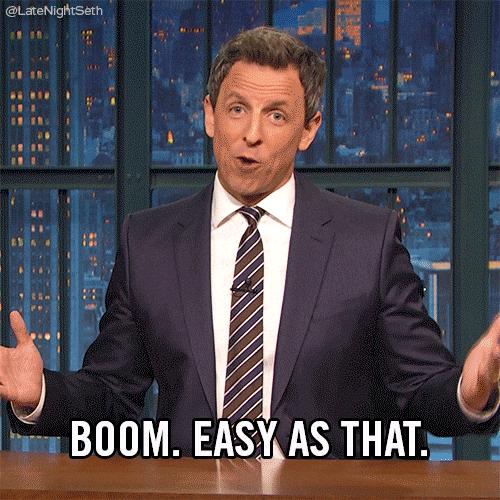Have you heard? Facebook Groups are one of the most important channels to focus on.
Continuing the theme from Facebook’s F8 conference, the emphasis was on Groups front and centre as how it wants users to think of the Facebook ‘experience’.
“People have always come to Facebook to connect with friends and family, but over time it’s become more than that – it’s also a place to connect with people who share your interests and passions. We’re making changes that put Groups at the centre of Facebook and sharing new ways Facebook can help bring people together offline.”
Facebook Blog
So what does this mean for social marketers?
It means we need to revisit our Facebook Groups strategy, that’s what.
We’ve come up with 10 things you can do now to kickstart your Facebook Group(s), whether you’re starting from scratch or reviving existing communities. You got this! 💪
1. Think about your purpose.
This might sound simple, but it’s so important, as with any strategy, to know what your goal is. How do you want members to benefit from their participation? What does a successful group look like? Does the group’s name fit?
Tip: The more niche your interest area/subject, the easier it’ll be to have targeted discussions.
2. Optimise your group name and description for Facebook’s new group discovery tab
Choose a descriptive, keyword-rich name to ensure you’re discoverable in Facebook’s newly-designed Groups tab – that is, if you want to be found (and not invite-only).
For example, if your group is for women who work as social media managers, instead of just Women in Social Media, consider: Female Social Media Managers: Tips & Support for Women Working in Social Media Marketing.
It’s immediately clear who this is for; what you might find in the group; and it ticks multiple keywords. Boom! ✨
Side note: Even if you want to be discoverable, do make sure your group is ‘Closed’ to avoid attracting low-quality members. You want it to maintain a level of exclusivity, and not let just any Tom, Dick or Harry in.
3. Join and participate in other groups
Trust us, it’s worth it.
Not only will you gain the benefits of joining engaged communities around niches related to your industry, you’ll be able to see what works, what doesn’t work, challenges and expectations.
Check out this epic list of Facebook Groups to join for some inspo.
4. Take advantage of the posting features

Post formatting and interactive features give users more ways to interact with the content, and allow for more variety; keeping everything fresh and exciting.
5. Be consistent
Come up with some regular features that people will come to expect. For example:
- Monday: Share what your goals for the week are
- Wednesday: Introduce yourself!
- Friday: What’s gone well this week? What hasn’t?
Your ideas may be different depending on your subject matter, so think about what kind of content could appeal to your audience, create some themes, and test the response!
6. Attract more members with gated content
Just like when you attract email subscribers with a downloadable whitepaper or case study, you can do that in your Facebook Group, too!
Just share the content in your FB Group, copy the permalink of the post, and promote the link – in order to access the content, they will need to join your group. Simple!

7. Set clear guidelines
All active and successful Facebook Groups have one thing in common: clear rules and moderation. Without this, it can become a free-for-all for self-promotion or off-topic discussion, and no-one enjoys sifting through all that.
Setting clear boundaries and then enforcing them makes for a much happier group in the long run.
8. Promote it
Don’t just expect people to rock up to a party if there’s no invitation! 🎟
Ensure your group is consistently represented on the following avenues:
- Email newsletters (see email newsletter software)
- Any onboarding messaging
- Website
- Blog posts
- Facebook Messenger
- Social media posts
- Paid social posts
- Email signature
- Customer service team members’ signatures
- Influencers’ platforms
- Existing members – you could even gamify the process so that the highest referring members win a prize.
Pro Tip: Set up a Facebook Messenger Chatbot to automatically direct your Facebook Page visitors to your Facebook group.
9. Automate as much as you can
It’s a lot of work, keeping a community engaged.
So to take some of the pressure off, we recommend pre-scheduling your regular content.
A tool like SmarterQueue helps you keep things ticking along by pre-scheduling your Facebook Groups posts all in one, so your time during the rest of the week is freed up to focus on community management.
10. Don’t scrimp on the quality
Just because it’s a closed group doesn’t mean you can get away with posting low-quality content!
Create bespoke content specifically for the group – don’t be tempted to re-share things from your other platforms all the time or be less creative than you would on your ‘public’ channels.
The more you put in, the more you’ll get out. Use a tool like Canva to create bespoke imagery to accompany your posts.
What do you think about our Facebook Groups for 2020? Have you got any you’d add? What is working for you? Let us know below! 👇

